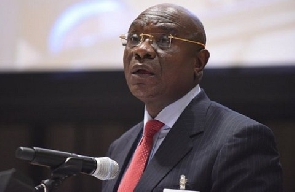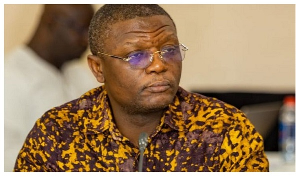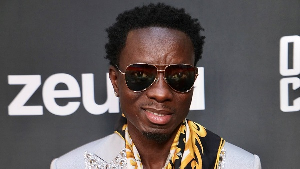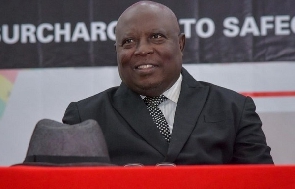As we celebrate the 50th Independence Anniversary of Ghana this March, I find it appropriate to trace the history of state-organised education in that country since the establishment of the Castle Schools by the British Colonial Administration in Ghana (known as Gold Coast before independence in March 1957). Granted the fact that education is one of the most important tool for national development it becomes the responsibility of any progressive government anywhere to provide and promote sound educational policies as well as infrastructure that will help its people to acquire knowledge, skills and attitudes that enable them to develop their potentials. McWilliam and Kwamena-Poh (1975) state that it was not until the last quarter of the 19th century that Ghana began to take first steps towards a state-organised education. Before then informal systems of education had been the main way in which Ghanaian communities prepared their members for citizenship. It is interesting to note that in Ghana the first “school” was the home: the “teachers” were the parents and the elders in the family. The “curriculum” was life and learning was by observation. According to McWilliam and Kwamena-Poh (1975), the first major purpose of such education was the inculcation of good character and good health in the young members of the community. The second was to give them adequate knowledge of their history, beliefs and culture, thus enabling them to participate fully in social life. It could be seen from the foregoing comment that the purpose of non-formal education since the beginning of the Ghanaian society has been for national development.
Castle Schools:
Though the traditional educational system in Ghana provided special training for members of the community it would certainly not have been adequate to modern needs. The building of formal educational system started with the colonial government in the form of castle schools in the foreign endeavours of the then Gold Coast in the 1600s and later as colonial schools in the 1800s. A native of Ghana (then Gold Coast), Philip Quaque was trained in England at the early age of thirteen and after his graduation became the first African headmaster of the Colonial School at Cape Coast, Ghana in 1766 and held the position till his death fifty years later. The Colonial School at Cape Coast produced the first generation of English-educated Africans, which though small had great influence on the development of the country. Prominent among them was George Blankson of Anomabu, who in 1861 became the first pure African member of the Legislative Council.Mission Schools:
Mission Schools followed the Castle Schools with the arrival of the Missions in the country. The Wesleyan and Basel Missionaries established schools in Cape Coast, Dixcove, Anomabu, Accra, all along the coast and Akropong, few miles away from the coast respectively in the 1830s and 1850s. The now Ashanti Region of Ghana began to experience some formal schooling when in 1831 two Asante princes were sent to the Cape Coast castle school to be educated at the expense of the then Governor of Gold Coast, Maclean. They were Owusu Kwantabisa, the son of the Asantehene, Osei Yao (1824-34), and Owusu Ansah, son of his predecessor, Osei Bonsu (1800-24). The two Asante boys were later sent to England to further their education for the next three years. They returned to the region in 1841 as British agents. Meanwhile, the Wesleyan missionaries had moved to Kumasi, which is the capital town of Ashanti to establish mission schools there. According to McWilliam and Kwamena-Poh (1975), not only were missions regarded as the right bodies to manage education; they had more money than the government with which to do so. For example, in the same year, 1844, Thomas Birch Freeman during a single visit to Britain was able to collect 5,500 pounds for the work of the Wesleyan Mission in Gold Coast-more than the Gold Coast government’s total revenue for that year. Yet the missionaries opened schools not to spread literacy or to train their students to earn a living, they did so because they thought that schools were one of the best means of spreading the Christian faith.First Education Ordinance:
The first Education Ordinance in the country was passed in 1852 under Governor Stephen Hill. It was to provide for the better education of the inhabitants of Her Majesty’s forts and settlements on the Gold Coast. The ordinance failed due to the refusal of the people to bear the cost of education through the Poll Tax. Another Education Ordinance in 1882 brought two categories of primary schools in the country. “Government” and “assisted” schools. Non-government bodies ran the latter. The government policies had no influence on education in Asante and the Northern Territories until the annexation of Asante by the British in 1901, and the establishment of the Northern Territories Protectorate at about the same time. The Accelerated Development Plan: Governor Guggisberg brought improvement to the economic, health and education sectors of the country. In 1920 he established the Educationists’ Committee which recommendations saw tremendous expansion to the education system in the Gold Coast. Later, in the 1940s under the rule of Governor Burns the desire for compulsory education for all children in the country engineered the Accelerated Development Plan for Education in Ghana. This was to be given a big attention in post-independent Ghana under the Premiership of Dr. Kwame Nkrumah. (See the Accelerated Development Plan for Education, Accra, 1951).The rapid development notwithstanding education practices in northern Ghana present one of the many education inequalities and disparities of the system of education that the country inherited from the colonial powers. Educational development in the north is very recent compared to the south. In addition, people in northern Ghana are underserved by the nation’s educational system. The area has few schools when compared to number of children of school going age. The northern area also has high pupil to teacher ratio, most of the teachers who are recruited lack pre-service training, and the state of school infrastructure in that part of the country is comparatively poor.
Post-Independence Educational Development: After Ghana attained independence from British Colonial rule on March 6, 1957 education became a high priority on the government’s agenda. There were policies on free compulsory basic education, free textbooks for all students and, the creation of local education authorities with responsibilities for buildings, equipment and maintenance grants for primary schools (Asiedu-Akrofi, 1982, p. 100). There was a dramatic increase in the number of elementary and secondary schools during the regime of Dr. Kwame Nkrumah, which was overthrown, in a military coup in 1966.
Though a new education committee under Professor Kwapong was appointed immediately after the overthrow of Dr. Kwame Nkrumah to fix the weakness in Ghana’s education, at the close of the 1970s, Ghana’s education could only be described as “decayed” and needed organic rejuvenation. The decay was a result of political instability with its resulting poor management, corruption, and general macroeconomic turmoil (Mfum-Mensah, 1998).
By the 1980s, Ghana’s education system had become dysfunctional. Serious challenges confronted it. In 1988, the military government of Jerry John Rawlings implemented broad reforms that touched all levels of the education system (except early childhood education) and attempted to address the recurring issues affecting the system. The reforms reduced pre-university education in the country from 17 years to 12 years (six years of primary, three years of junior secondary-JSS and three years of senior secondary-SSS education). There was also national literacy campaign through non-formal education for school dropouts and adult learners. The civilian government of Ghana under President J.J. Rawlings in 1996 implemented the Free Compulsory Universal Basic Education (fCUBE). This was specially designed to focus on basic education access and quality through improving the quality of teaching and learning, efficiency in management and, increasing access and local participation.
Rawlings handed over government to J. A. Kufuor in 2001. Since then, President Kufuor has come up with some education reforms up to now. Unfortunately, very little has been achieved in the light of all these reforms, especially for those living in rural communities. The recent SSS final examination results throughout the country testify to that. That is the sad story of Ghana’s education system as at now.
It would not be far-fetched to surmise that education in Ghana today is apparently in crisis - from the JSS through the SSS to the tertiary institutions. There is so much uncertainty about and mismanagement of the educational policies initiated by the PNDC government, which were strongly supported by the World Bank. Though things are not as expected, all is not lost yet.
Precisely, it is in the light of this crisis that we must do something about and with our education. We have to put our heads and hands together to revamp education in Ghana.
Improving Formal Education in Ghana: New Education Policy- The present NPP government of Ghana under the leadership of President Kufuor has plans to introduce a new education policy this year (2007) to get community members involved in the management of education such as School Management Committees (SMCs) to become more accountable to the people. We welcome any sound education policy that will salvage the deterioration of the education system. Such policy should not overlook the need for high quality early childhood education that will lay strong foundation for learning for all children in the country despite their socio-economic backgrounds. We need high quality early childhood education programs in Ghana as we have in Canada. The Government has also planned to introduce a new policy on the funding of tertiary education this year, which it is hoped would resolve the controversy that over the years had characterised the financing of tertiary education in the country. Though the Ghana Education Trust Fund (GETFund) has since its inception provided 1.8 trillion cedis for the rehabilitation or construction of libraries, dormitories, laboratories, provision of computers and books for libraries the funding of post-secondary education is still inadequate. Students at tertiary institutions in the country are charged exorbitant fees, which many a Ghanaian parent cannot afford.
The support of some religious bodies and organisations to meet their social responsibilities to the people by providing tertiary education for many Ghanaians who could not be accommodated by the 5 public universities is highly appreciated. Such private universities like Valley View University (SDA), Catholic University, Presby University, All Nations University, Methodist University among others have come to the aid of our education system. The Government must therefore to strengthen its already cordial relationship with such religious bodies high quality education and discipline that they bring to the system.
Indiscipline in Our Schools- It is reported that over the past few years the Ghana Education Service (GES) has observed with grave concern and disappointment increasing cases of indiscipline in some schools. These acts manifest themselves in drug abuse, sale of narcotic drugs on campuses, stealing and destruction of school property, sexual abuse and harassment, occultism and examination malpractices, among others.
In present times students are found to falsify results and certificates to enable them to gain admissions into tertiary institutions. No wonder, degrees and diplomas from Ghana are nowadays vigorously scrutinised in most developed countries before been accepted in those countries.
The present Minister of Education in Ghana, Papa Ankomah remarked to a gathering of students recently that these acts contravene the concept of quality that the system is supposed to provide.
Development and Distribution of Trained Teachers- It is disturbing to read from the media in Ghana that “an intractable problem of inadequate and unfair distribution of trained teachers, deteriorating education infrastructure and poor working conditions among others, has left many public schools in both rural and urban communities without the required number of teachers.”(Public Agenda, May 2006, Accra-Ghana) The report continues, “But with Ghana’s Pupil-Teacher Ratios (PTR) widening to as high as 24 pupils to a teacher, stakeholders fear the country’s already poor educational standards could worsen.” And that, “beyond the inadequate number of teachers is the problem of teacher deployment across the country, since many teachers refuse posting to deprived communities.” How sad! How could this situation be allowed to continue in our present day Ghana?
The Ghana government must be lauded on its efforts to abolish fees for basic education and the increase in enrolment at that level. However, to ensure quality education for all children the government must provide better incentives to attract teachers to deprived communities.
There should also be effective collaboration between the District Assemblies, District Education Offices, Town Councils and schools of deprived communities in recruiting and training teachers for such areas.
Apparently, education in Ghana has suffered from lack of adequate funding and, inefficient management. However, the problem of poor results could not be put at the doorsteps of the government alone. Most Ghanaian parents/guardians and students everywhere (I stand to be corrected) do not take education seriously too! Whilst it could be argued that poverty has denied some Ghanaian parents the “power” to adequately support their children in school, many who are financially capable are often seen squandering their money on fashion, drinks, and litigation at the expense of their children’s education. They fail to invest in the future of our young ones by failing to invest in their education today. For example, some Ghanaian parents who receive regular child support (in form of money) from governments of progressive countries like Canada where they reside spend the money on themselves instead of, say, buying education insurance with such money for their little ones’ future.
If Ghana as a country would revisit its pre-independence high standard in education then the government will have to make education a top priority and commit more resources (both local and international) to ensuring the rejuvenation of the country’s education system. The waste, “try and error”, misapplication and mismanagement in the system must be stopped!



















